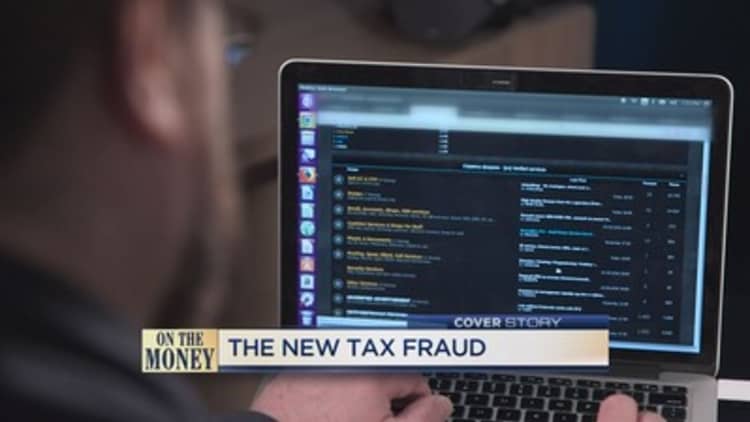It's one of the great certainties of life: Tax returns are due every April.
And one more thing you can count on: Scammers will try to swindle money from unknowing taxpayers.
These common schemes tend to increase around tax time.
Here are the top things to watch out for as Tax Day approaches.
Identity theft
Con artists could pose as you — and steal your individual taxpayer identification number or Social Security number — to try to get access to your refund.
And criminals are coming up with more creative ways to get your information.
Avoid becoming a victim by using computer software that has antivirus and firewall protections. Do not give out your personal information via email, phone or text.
Phone scams
If someone calls threatening to arrest you, deport you or revoke your license over a tax bill, don't believe it.
Fraudsters typically call unsuspecting individuals and claim to represent the IRS. And they have been known to prompt victims to pay bogus tax bills via wire transfers or prepaid debit or gift cards.
The IRS will never call you to demand specific payments. If you receive such a call, it is best to hang up and report the call to the IRS at 800-829-1040.

Phishing schemes
If an email or website asks for your personal information, be wary. One particular scam to watch out for uses your own bank account.
The scam works by having criminals deposit funds into your account, who then contact you to try and recoup the sum. They often identify themselves as the IRS or a collection agency. In reality, they're imposters who are after your bank account information.
Do not give out your personal information. The IRS never contacts taxpayers by email for their personal information.
Fraudulent tax preparers
Dishonest tax preparers tend to surface around tax time.
Working with such so-called professionals can lead to refund fraud and identity theft, not to mention get you in hot water with the IRS.
Avoid becoming a victim by doing some research on any professional with whom you work.
Every tax preparer should have a Preparer Tax Identification Number, or PTIN, with the IRS. In addition, their registration with the agency will show whether they have appropriate qualifications, including whether they are an enrolled agent, certified public accountant or attorney.
More from Personal Finance:
If you failed to withhold enough tax in 2018, the IRS has a nasty surprise for you
Why getting a big tax refund isn't always a good thing
Here are the people most likely to get a bigger tax refund this year
Inflated refunds
Beware of scam artists who masquerade as tax professionals and promise large federal tax refunds.
They may encourage you to claim benefits, rebates or tax credits that are not accurate.
Fraudsters may even file a false return using your name and pocket the refund.
These individuals may try to gain your trust through presentations at religious groups and community events. They may use phony storefronts, advertisements and flyers to promote their services.
In addition to doing a background check on any tax preparer, be sure to carefully read your tax return before you sign it.


